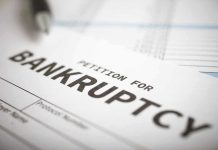
One missed credit card payment can turn your financial reputation upside down, setting off a chain reaction that could haunt your ability to borrow for years—unless you know exactly how to break the cycle.
Story Snapshot
- Credit card delinquency is more than a missed payment—it’s a red flag to lenders that can sabotage your future borrowing power.
- Penalties, surging interest, and credit score damage hit fast when payments are late.
- National delinquency rates have soared 44% in just one year, highlighting a growing economic stress point.
- Five practical steps can help anyone escape the debt spiral and rebuild financial health.
Delinquency: The Red Mark That Won’t Disappear
Credit card delinquency begins the moment a cardholder fails to pay even the minimum amount by the due date. What seems like a small oversight quickly escalates. Once a payment is missed, credit card companies report the delinquency to major credit bureaus—CIBIL, CRIF High Mark, Experian, and Equifax. These reports become a “hard inquiry” on your credit file, immediately dragging down your credit score and placing your borrowing credibility under a microscope. Every subsequent lender, from banks to fintechs, will see this blemish and may decide you’re too risky for a loan or another credit card.
After 30 days, penalty charges pile on and interest rates climb. Unpaid balances don’t just sit still—they balloon, compounding into a debt mountain that’s harder to scale with every billing cycle. Delinquency isn’t a private affair; it’s a public red mark. Lenders scrutinize your profile relentlessly, and if late payments become a pattern, you risk being blacklisted altogether. Legal notices and the threat of default can follow. For many, this is when panic sets in, but there’s a way out if tackled head-on.
Delinquency Is an Economic Alarm Bell
India’s credit card delinquencies have shot up 44% year-over-year, reaching an eye-popping ₹33,886 crore as of March 2025. This is not just a personal problem—it signals deeper economic stress. When millions turn to credit to cover daily expenses but can’t pay it back, banks tighten lending standards for everyone. Unsecured loans become harder to get, interest rates creep up, and the entire credit ecosystem grows more fragile. Governments and regulators are now urging responsible repayment, trying to halt a dangerous domino effect that threatens broader economic stability.
Financial institutions aren’t just concerned with individual borrowers. High delinquency rates force banks to hike up borrowing costs for everyone, not just those in trouble. The message from economists and policymakers is clear: responsible credit use is everyone’s responsibility, and poor habits have national consequences.
Escaping the Debt Trap: Five Steps That Work
The first line of defense is a written monthly budget. Knowing exactly where your money goes—and how much you actually have—prevents surprises. Automated payments or calendar reminders stop missed payments before they start, protecting you from cascading penalties. Prioritize high-interest debt: credit cards and overdue loans should be paid off first, before you even think about discretionary spending.
Communication is a lifeline. If you’re struggling, reach out to your credit card issuer. Many offer payment restructuring, hardship programs, or date adjustments if you’re proactive and transparent. Most importantly, stop using your card until the debt is cleared. Every new charge deepens the cycle and makes recovery harder. The discipline to spend only what you have is the ultimate shield against long-term damage.
Building Better Habits for Lasting Financial Security
Understanding how credit cards work is non-negotiable for anyone seeking financial security. These tools can be assets or liabilities—the difference is in the discipline of their user. Consulting a certified financial advisor before making big credit decisions can prevent mistakes that take years to undo. Routine habits—paying on time, checking statements, and regularly reviewing your credit profile—are the foundation of a healthy financial life. No single step is a magic fix, but together, these habits can help you recover from delinquency and safeguard your borrowing future.
Credit card delinquency doesn’t have to be a life sentence. With vigilance, honesty, and a commitment to change, anyone can escape the debt trap and emerge with a stronger, more resilient financial profile.
Sources:
6 effective ways to strengthen your credit profile through regular reviews, credit score
10 essential personal loan terms every borrower must understand before taking a loan
Credit card delinquencies hit Rs 33,886 crore; 5 simple habits to avoid falling into debt trap













